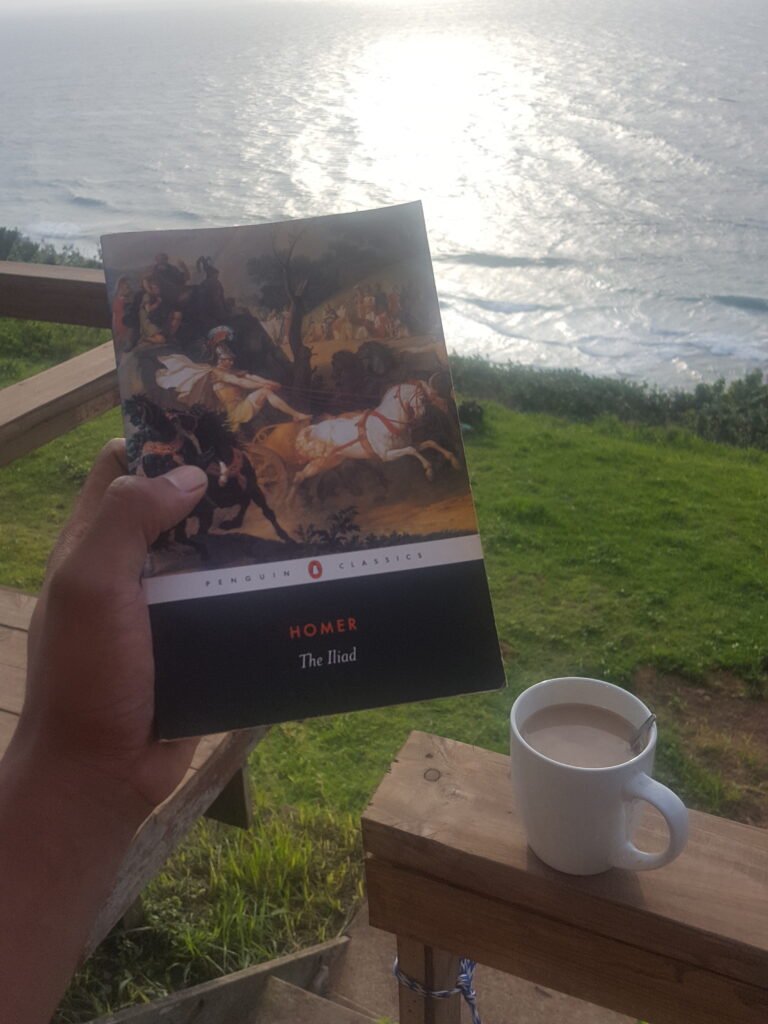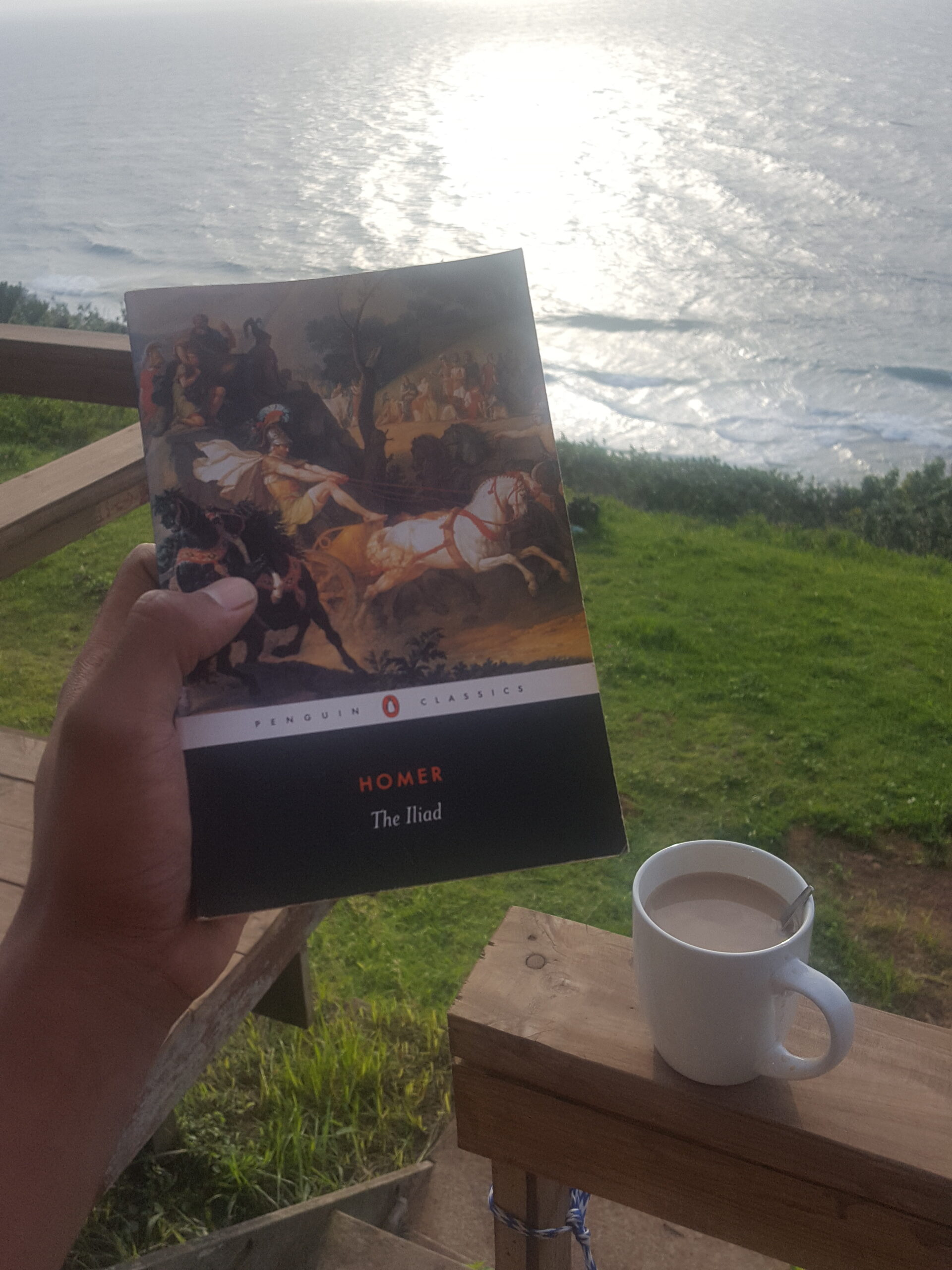
I recently finished reading both The Iliad and The Odyssey, and it was quite an experience, especially since I tackled both at the same time. One thing that made reading The Iliad particularly interesting was the fact that I had already seen the movie Troy when I was younger, and it had a huge emotional impact on me. I remember being completely swept up in the grandeur of the story and Brad Pitt’s portrayal of Achilles. The movie left a strong impression—Achilles was this larger-than-life hero, and the directors did their best to capture his strength, pride, and inner conflict with Pitt’s performance.
So, when I started reading The Iliad, it was tough to shake that image of Brad Pitt as Achilles. I kept seeing the movie version in my head, which made it hard to connect with the more complex, deeply emotional Achilles that Homer had written. It wasn’t that the movie got Achilles wrong—Pitt’s portrayal was powerful in its own way—but the character in the epic poem was so much more layered. He’s not just a heroic warrior, but someone torn apart by pride, rage, and personal conflict. That movie version had left such a lasting impression that it was hard to see Achilles with new eyes while reading the book.
But that didn’t take away from the overall experience. In fact, it made it more personal. I found myself constantly reflecting on the differences between how Achilles was portrayed on screen and in the text. The movie gave me one perspective—this strong, almost invincible hero—while the book showed me a flawed, deeply human character. It was like seeing two sides of the same coin, and that tension between the two made me appreciate The Iliad even more.
In contrast, The Odyssey took me on a completely different journey. Odysseus’ adventures are full of mythical creatures and divine interference—Cyclopes, nymphs, and dangerous temptations all stand in his way as he tries to get home. It’s more about endurance and cleverness than brute strength. Odysseus isn’t fighting for glory like Achilles; he’s just trying to survive and outsmart everything that comes his way. The story is about persistence, and reading it alongside The Iliad made for a nice balance. Where The Iliad is intense and heavy, The Odyssey feels like a grand adventure with hope at its core.
Reading both of these epics together was an eye-opener. Achilles, with all his pride and rage, reminded me of personal conflicts we all face—times when emotions take over and you struggle with how to move forward. Odysseus, on the other hand, reflected life’s long, winding road and the need to keep pushing forward no matter the odds. Both stories, in their own ways, felt timeless.
What really made these books resonate with me was how much I could personally relate to both. The Iliad reflected my own dreams of accomplishment, that drive to achieve something great, even when obstacles—internal or external—stand in the way. Achilles’ pursuit of glory reminded me of my own ambitions and the challenges I’ve faced in trying to reach them.
The Odyssey, on the other hand, spoke to the struggles we endure in life. Odysseus’ journey home, filled with trials and setbacks, felt like a reflection of the mental strength and resilience needed to push through tough circumstances. His story reminded me of the endurance required in life—to keep moving forward, even when everything feels uncertain.
It’s almost as if these books were written not just for their time but for all of humanity. The fact that they’ve stood the test of time and still resonate with people thousands of years later is remarkable. It’s a testament to the universal truths they capture about our dreams, our struggles, and the human spirit. Reading these epics made me appreciate not only the stories themselves but also how deeply connected they are to the experiences we all share.
